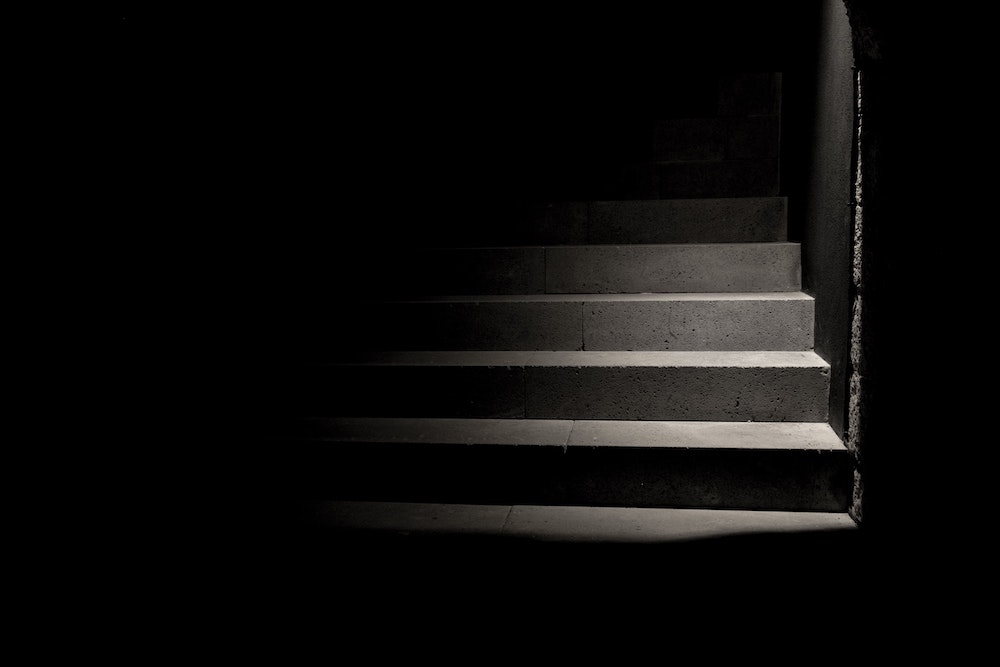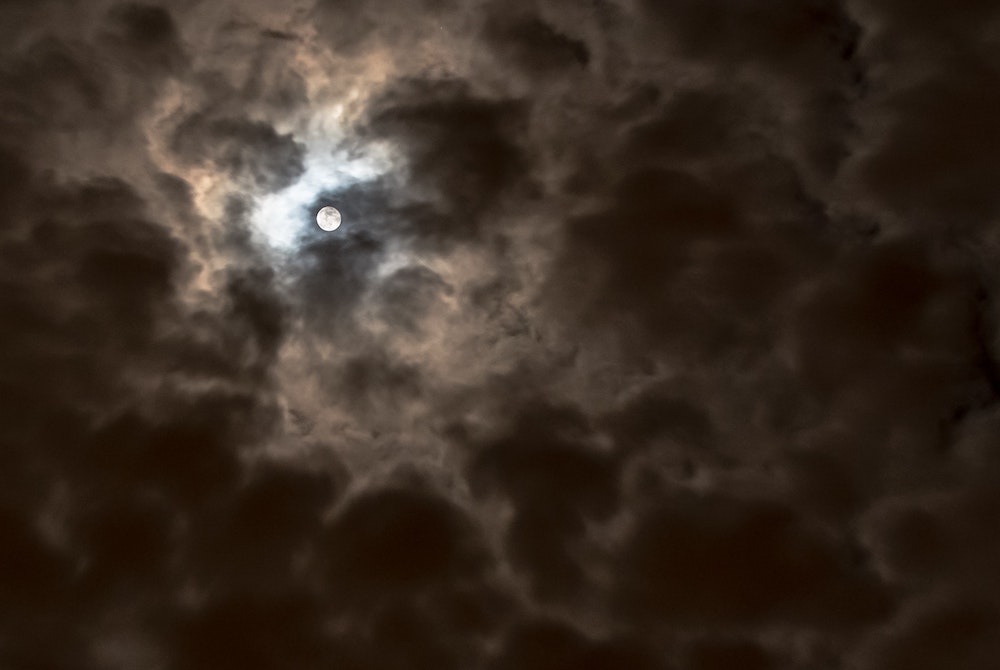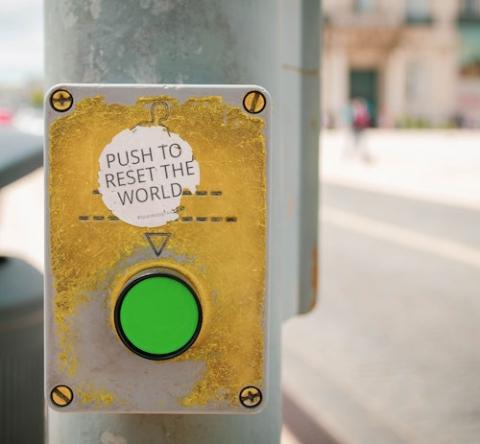
For centuries, "dark" has been a symbol of evil, of something malicious. (Unsplash/Carolina Pimenta)
We do this all the time: We sleep through darkness every night — it's no big deal. Somehow though, as we passed the autumn equinox this year, the coming of the dark time carried anxieties and dread it never did before. Darkness this time was different in a thousand ways. I need to explore why.
For centuries, "dark" has been a symbol of evil, of something malicious. In the cowboy tales, the one in the white hat is the "good guy," Watch out for the men in black, or in white America, the Black men. In drama, the villain is often the one in the shadows, the black costume, the one whose face the audience cannot quite make out. Children preparing for first Communion were sometimes told that the sacraments of penance and baptism were able to make souls white again, the implication being they were dark before. We have been taught, deliberately or tacitly, that darkness is to be feared, avoided and, if possible, destroyed.
It is true that we judge the world largely in terms of what we see. That which is clear or easily defined by shape or color is judged acceptable or not in terms of what we have experienced with similar objects. Hearing is just as important in a different manner; sounds we recognize are already identified in our minds: voices, mechanical noise and sounds we associate with nature relate to an image of who or why or how they are made. Things we cannot see or see very dimly and sounds we fail to recognize or know to be scary prescribe how we will react. Children hide; adults decide between fight or flight.
Advertisement
There is a darkness of the mind which, even though we may not experience it ourselves or recognize it as such, creates fear, uncertainty and a sense of impending disaster. Things we cannot explain, put into words, illustrate or somehow describe to someone else cause worry, apprehension or even panic. Our mental health clinics and institutions are populated by persons plagued by a darkness of consciousness.
The world around us with all its national and international strains and stresses, local and far-reaching, real and imagined, creates a level of ambiguity in human beings we are not hard-wired to accept easily or without dis-ease. People want to know what to expect, what to avoid, what is true and what is not, who can be trusted and who cannot. While history assures us that certainty is elusive if not impossible to guarantee, we still want it.
So as I watch the season morph from summer into fall, the later sunrise and earlier sunset, the crackle of leaves under my feet and the weight of the jacket I must now remember to wear, do I understand the way my whole being is reacting? Yes and no. This time, it's not just nature going to sleep and the atmosphere reacting to the shifting slant of the sun. This time, I almost wish I too could follow the bear to his den and sleep the next few months away.
Women whose lives have been threaded with experiences that have inured them to irrational fears and taught them survival skills that have borne the test of time should be good at this. Women whose lives have been devoted to contemplation of things beyond the scope of human understanding yet claim their faith and confidence, while at the same time, engaged in action requiring skills, energy, competence and bottomless endurance should be especially good at this. Why am I not?

The psalmist in the Old Testament returns again and again to images that haunt me in the night: bones that lie broken on the ground; violent mobs eager to kill, people sheltering in tents, bent under the weight of enemies. (Unsplash/Jason Blackeye)
The psalmist in the Old Testament returns again and again to images that haunt me in the night: bones that lie broken on the ground; violent mobs eager to kill, people sheltering in tents, bent under the weight of enemies. He knows that God hates arrogance, liars and thugs, the ones who tear down, insult, "whose lips are all blessing but murder fills their hearts." I need to remind myself that the disciples, who were told to go and baptize all nations and took that mandate seriously, got into a lot of trouble for doing just that. The dichotomy between doing the right things and getting burned for it prevails throughout Scripture. Still, the same psalmists who painted dire pictures of life in their times were also noted for their depictions of joy, peace and trust.
This is where I will find the way through darkness. The lines, familiar as they are, still carry deeper meanings, meanings they never had for me before; examples far more dangerous than those I face, to be honest, and promises that proved to be true. I can look to the mountains that will not protect me either but may reveal an understanding of other protections on which I once counted — and know now that I can't anymore. I remember a rock in the middle of a lake where we once vacationed and thinking it would be no rock of safety in a storm, or would it? Firmly embedded in the lakebed, no storm could topple it.

(Unsplash/Jose Antonio Gallego Vazquez)
The darkness in these times are like none we have experienced before, yet we have only the tools and strategies we've always had to fall back on. Where is that "reset" button that Staples, the office supply chain, used to advertise? God tells me that I do have all I need to find my way through this long night. I must find some night vision glasses, gather my courage and say, "The Lord is my shepherd; there is nothing I shall fear."
[Pat Kenny is a member of the Sisters of Mercy of the Americas. Her ministries included education, efforts to address homelessness, transitional housing, community leadership and communication. While writing was always enjoyable, it was a minor part of each ministry until the last when she was a member of the Institute of the Sisters of Mercy communications staff and editor of internal and external publications. She resides at Marian Woods in Hartsdale, New York.]







